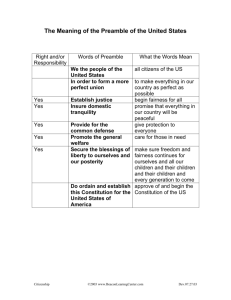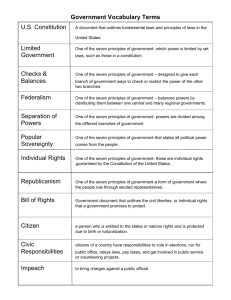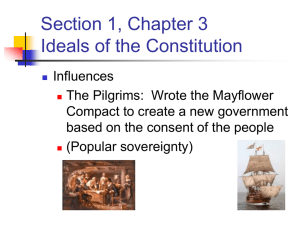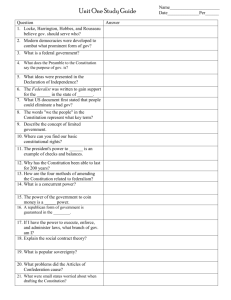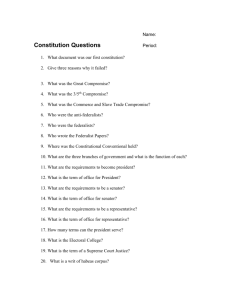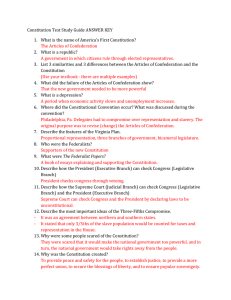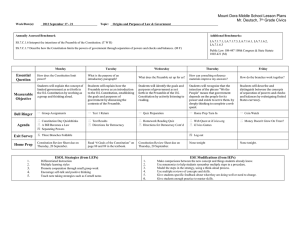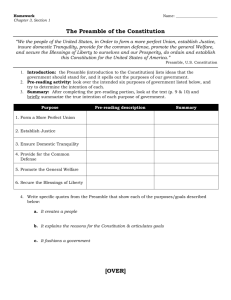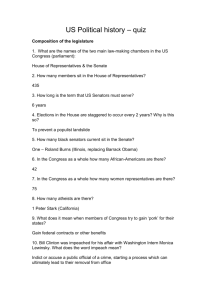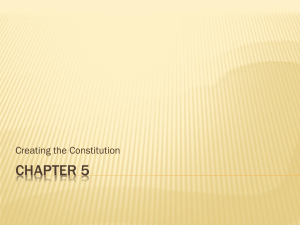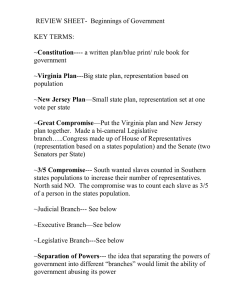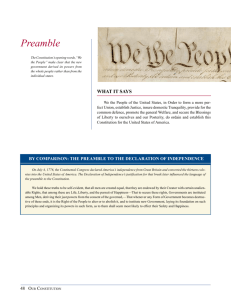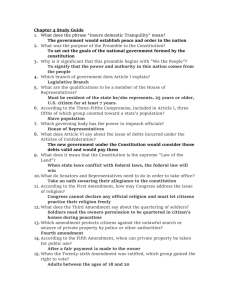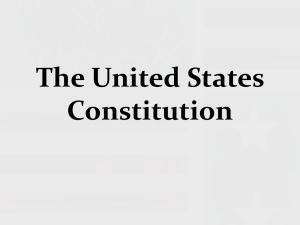Seven Basic Principles of the Constitution
advertisement
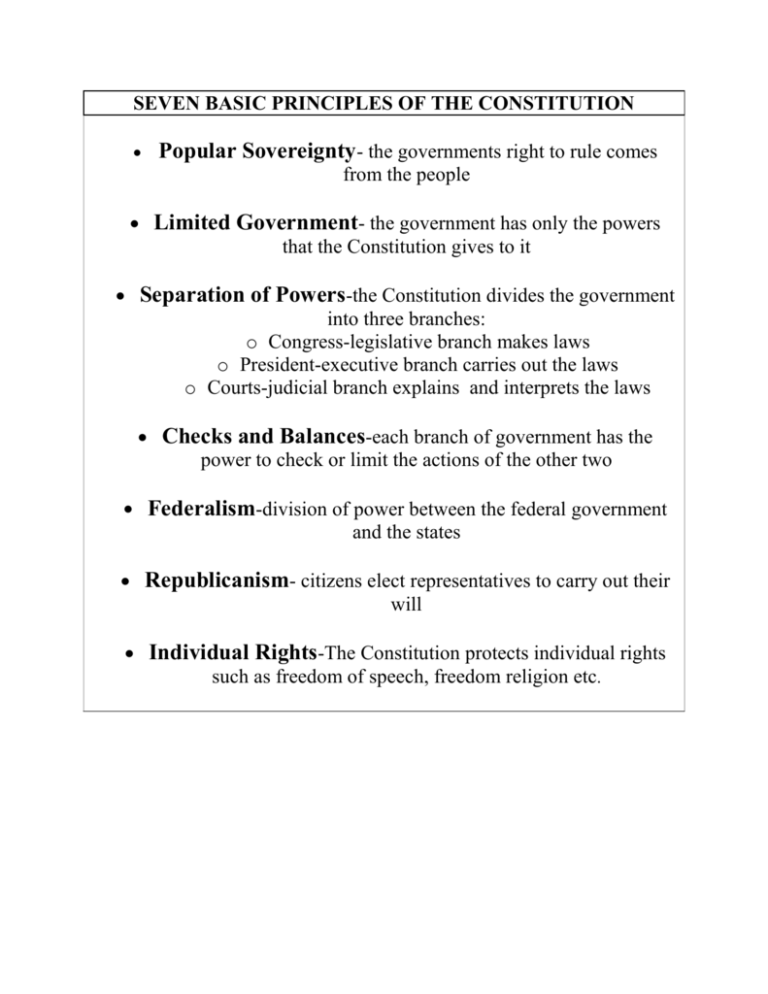
SEVEN BASIC PRINCIPLES OF THE CONSTITUTION • Popular Sovereignty- the governments right to rule comes from the people • Limited Government- the government has only the powers that the Constitution gives to it • Separation of Powers-the Constitution divides the government into three branches: o Congress-legislative branch makes laws o President-executive branch carries out the laws o Courts-judicial branch explains and interprets the laws • Checks and Balances-each branch of government has the power to check or limit the actions of the other two • Federalism-division of power between the federal government and the states • Republicanism- citizens elect representatives to carry out their will • Individual Rights-The Constitution protects individual rights such as freedom of speech, freedom religion etc. Basic Principles Reflected in the United States Constitution Basic Principles Description Location in the Constitution Limited Government Powers of government are restricted by the Constitution. Republicanism Voters hold the sovereign power and elect representatives to Preamble and Article I exercise power for them. Checks And Balances Each of the three branches of government exercises some control over the others, sharing power among them. Federalism Power is divided between the national and state governments, 10th Amendment limiting central power. Separation of Powers Each branch of government has its own responsibilities and Articles I, II, III limitations. Popular Sovereignty Authority for government flows from the people and they rule through their representatives. Individual Rights Unalienable rights guaranteed to Preamble and Bill of Rights all citizens. Articles I, II, III Articles I, II, III Amendment IX and Preamble


